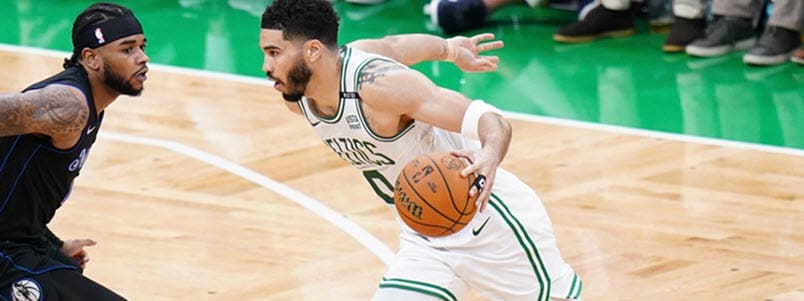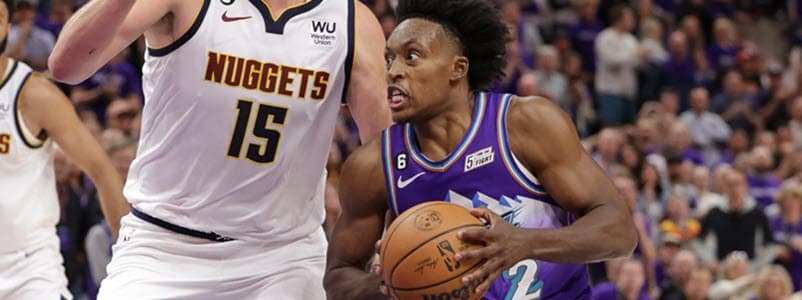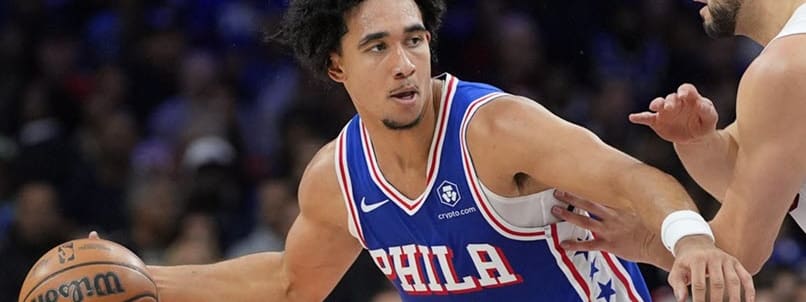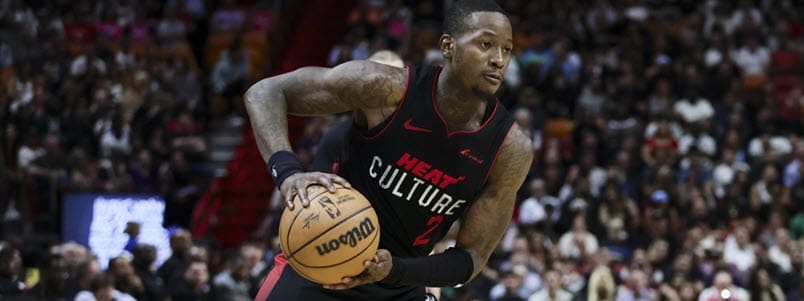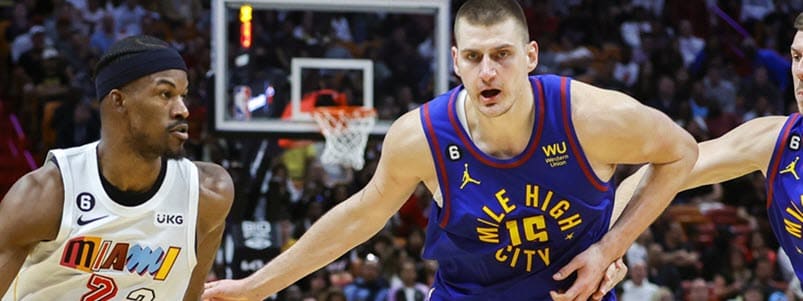Recent RotoWire Articles Featuring Kelly Olynyk
See More
Olynyk was a popular pick among fantasy experts last season, and he rewarded his fantasy managers with a sparkling season. The big man averaged 12.5 points, 6.2 rebounds, 3.7 assists, 0.9 steals, 0.5 blocks and 1.4 threes across 28.6 minutes a night. He also shot 49.9 percent from the field, 85.3 percent from the free-throw line and 39.4 percent from long range. A late start by Walker Kessler and an injury to Lauri Markkanen helped Olynyk maintain those averages, but this frontcourt is getting crowded. Both of those youngsters are expected to take another step this season, and we didn't even mention the acquisition of John Collins. That means Olynyk might be relegated to a bench role and have difficulty playing more than 25 minutes a night. He can still be productive in that type of role, but it makes Olynyk challenging to trust from a fantasy perspective. He might get picked late in your draft, but it's better to stay away in such a crowded kitchen because Collins, Markkanen and Kessler should all play at least 30 minutes a night.
After his heroics in Houston to close the 2020-21 season, Olynyk came into last season with some hype. Unfortunately, he failed to live up to expectations, thanks partly to an injury that cost him a significant chunk of the season. His production was lacking when he was on the court, scoring in double digits in just seven of his final 28 games. He ended the season well outside the top 200, with averages of just 9.1 points, 4.4 rebounds, 2.8 assists and a combined 1.3 blocks and steals, logging 19.1 minutes per night. This offseason, Olynyk was dealt to the Jazz in the trade that landed Bojan Bogdanovic in Detroit. Olynyk is 31 years old and doesn't fit Utah's rebuild, but he's the best option the team has at center, unless Lauri Markkanen or Jarred Vanderbilt start at the position. We'll presumably learn more in preseason, but if Olynyk is going to consistently see minutes in the mid-to-high 20s, he could hold standard-league relevance.
Olynyk was on his way to a typical season with the Heat -- 10.0 points, 6.1 rebounds, 2.1 assists in 26.9 minutes -- until he was dealt to the Rockets in the trade that landed Victor Oladipo in Miami. Once in Houston, Olynyk was given a starting job and the biggest role of his career for his final 27 appearances. In 31.1 minutes per game, he averaged 19.0 points on 55/39/84 shooting, 8.4 rebounds, 4.1 assists and 1.4 steals. Notably, against the 76ers, he posted a 27-point, 11-rebound, 8-assist, 3-block, 1-steal game. After making his debut for the Rockets on March 27, Olynyk was the fifth-best player in fantasy in terms of total production -- an absolutely shocking number that made him the best late-season pickup. Olynyk doesn't figure to have quite that level of production in 2021-22. In the offseason, he signed a three-year, $37 million contract with the Pistons. It's not immediately clear if Olynyk will start or come off the bench, but there's a chance he sees minutes in the upper-20s. If that's the case and coach Dwane Casey trusts Olynyk to handle the ball even close to what he saw in Houston, the big man should finish inside the top 100. Olynyk has proven capable of that in the past. In 2017-18, he saw just 23.4 minutes per game and ranked 95th, and he ranked 64th last season in 28.5 minutes. Drafting him in the sixth round would be aggressive, but optimistic fantasy managers have reason to explore drafting him after that.
Olynyk experienced a down year overall in 2019-20, recording 8.2 points, 4.6 rebounds, 1.7 assists and 1.4 triples across 19.4 minutes of run. The minutes and points were career lows, but what Olynyk lacked in playing time, he made up for in efficiency, posting 46.2/86.0/40.6 shooting splits. His percentages from the charity stripe and from three were both career highs, and the seventh-year NBAer made the most of his limited opportunities. Olynyk showed how good he could be given an expanded workload, as he averaged 17.2 points, 6.4 boards and 3.2 assists in five games where he featured for 30-plus minutes of action. This includes big-time showings in the Finals, where Olynyk averaged 20.5 points, 8.0 boards and 3.0 triples across Games 2-3 against the Lakers with Bam Adebayo out. An unrestricted free agent, Olynyk will look to parlay his end-of-season success into a new contract, with Miami or otherwise.
Olynyk took on an expanded role in Miami last season with Hassan Whiteside in and out of the lineup. The former started the most games of his career (36) while playing the second-most minutes of his career (22.9). A role player throughout his NBA tenure, Olynyk was solid when in the starting five, averaging 11.0 points, 5.0 rebounds and 2.1 assists per tilt. He's not a high-volume rebounder or scorer, but he's serviceable in those categories and capable of producing some big games when needed. He's also a solid shooter (47.8 FG%, 36.7 3P%, 76.5 FT%) who has a good chance to maintain his efficiency. With Whiteside now in Portland and the Heat failing to add more frontcourt depth, it's reasonable to expect Olynyk to see an increase in workload and production as the primary option behind Bam Adebayo
After spending the first four years of his career in Boston, Olynyk debuted as a member of the Heat last season, starting in 22 of his 76 appearances. He continued his efficient shooting, hitting 49.7 percent of his looks from the field, 77.0 percent from the charity stripe, and drilling 1.4 threes per game at 37.9 percent. He also posted career highs in points (11.5), rebounds (5.7) and assists (2.7) per contest. Olynyk’s less-than-ideal workload (23.4 minutes) subdues his Fantasy relevance, but his all-around play is good enough to keep him in top-100 contention. It’s important to keep in mind that he steps up when given expanded opportunities, however. In 14 games last season that he saw between 30-36 minutes, the big man averaged 14.1 points, 6.9 rebounds, 4.6 assists and a combined 2.1 steals/blocks while shooting 49.3 percent from the field, 79.6 percent from the stripe and 41.1 percent from deep.
Olynyk, a 7-footer capable of spreading the floor, was picked up by the Heat for the 2017-18 season after the Celtics were more or less forced to let him walk after the signing of Gordon Hayward. He’s shown promise though his first four years in the league and ended up averaging 9.0 points, 4.8 rebounds and 2.0 assists across 20.5 minutes per game last season. While his three-point percentage has fluctuated year-by-year since entering the league, Olynyk has become a more efficient scorer overall, raising his true shooting percentage each year through better shot selection. He’s capable of playing both power forward and center, though has trouble keeping up with the faster forwards in the league off the dribble, leading him to play more center. As a result, he’ll likely spend the majority of his minutes backing up starting center Hassan Whiteside -- who garnered 32.6 minutes per game last season -- and fill in at power forward here and there. Due to the Heat’s frontcourt makeup, it seems doubtful that Olynyk will see a massive jump in workload, but a sixth-man role doesn’t seem out of the question. For that reason, Olynyk’s Fantasy stock is likely on the rise.
Entering his fourth NBA season, Olynyk will look to solidify himself as a starting-caliber big man on what should be a strong Celtics team. After coming off the bench for 61 of 69 games last season, Olynyk is a candidate to start at power forward his season alongside high-profile free agent addition Al Horford. The pair will form one of the better shooting frontcourts in the Eastern Conference. Horford dramatically improved as an outside shooter in 2015-16, while Olynyk hit nearly 41 percent of his three-pointers on a career-high 3.0 attempts per game. The majority of Olynyk's minutes came at the center spot last season, so he'll have to adjust to defending quicker power forwards, while fending off competition for minutes from the likes of Tyler Zeller, Amir Johnson and Jonas Jerebko. The Celtics will deploy one of the NBA's deepest rotations, so even if Olynyk flourishes, it's unlikely that he tops 25 minutes per game, hindering what would otherwise be decent fantasy production in the three-point and rebounding categories. The question is whether Olynyk will be ready to begin the regular season after undergoing arthroscopic shoulder surgery in May. Olynyk was originally given a five-month recovery timetable, but reports heading into training camp suggest he might be progressing quicker than anticipated. It's unclear whether he'll ultimately miss any regular season contests, but if he does, it shouldn't be more than a handful of games before Olynyk is back up to speed.
The breakout season some predicted for Olynyk in 2014-15 unfortunately did not occur, as the Canadian had a shaky sophomore season. On the positive side of things, he saw improvement in minutes (20 to 22), points (8.7 to 10.3), three-pointers (0.6 to 1.0), and steals (0.5 to 1.0), as well as a slight one-point improvement in field goal shooting to 48 percent. But he regressed in other areas. His rebounds decreased to 4.7 per game, and his free throw percentage dropped 17 points to 68 percent. Olynyk also missed over a month of action due to a severe right ankle sprain. But the most glaring issue was Olynyk's tendency to become a non-factor in many games. Last year, The Clynyk had 22 games where he scored five points or fewer, including three poor efforts in the playoffs versus Cleveland. GM Danny Ainge realized the Celtics needed frontcourt help, acquiring David Lee and Amir Johnson in the off-season. Both veterans will probably take minutes from Olynyk, even with the departure of Brandon Bass. For Olynyk's third season, he's probably once again looking at a bench role with limited opportunities to develop his game. That could all change though if GM Danny Ainge makes a big trade deadline deal, as many expect. Until then, Olynyk's opportunities for growth seem limited.
Olynyk generated buzz entering his rookie season after wowing the onlookers at the 2013 Orlando Summer League, but summer-league performances are not a guarantee of future performance. The 7-foot power forward went on to have an up-and-down season, which included an early-season ankle injury. In 70 games, he averaged 8.7 points on 47-percent shooting, 5.2 rebounds, 1.6 assists, 0.5 steals, and 0.4 blocks in 20 minutes per game last season. Olynyk hinted at the polished offensive game that was his reputation coming out of Gonzaga, but he's a work-in-progress defensively. Forced to see a lot of action at center, NBA bigs attacked him in the post, and he was susceptible in pick-and-roll defense. That's largely due to his conditioning, something Olynyk has been working on between years one and two in the Association. Auguring well for the big man is the improvement he showed over the second half of the season that culminated in an impressive three-game stretch (25.7 ppg, 9.4 rpg, 3.7 apg) to finish the season. He'll get the minutes he needs to develop, expanding offensively and improving defensively, but the addition of Tyler Zeller will limit the available minutes at center. And there's a crowd at the four, along with Brandon Bass and Jared Sullinger. That's a problem coach Brad Stevens will need to address, but Olynyk is in line for an increased role this season.
A case can be made that Olynyk deserved MVP honors from the Orlando Summer League. While the sample size was small, he impressed fans with 18.0 points, 7,8 rebounds and 1.8 steals per game while shooting 58 percent from the field. He even hit three 3-pointers. Olynyk is a legit 7-footer but prefers a face-up offensive approach and lacks the bulk to guard true centers. He'll get most of his minutes at the power forward spot. "The Klynyk" (we'll see if that nickname takes off) is a big part of Boston's rebuilding plans.
